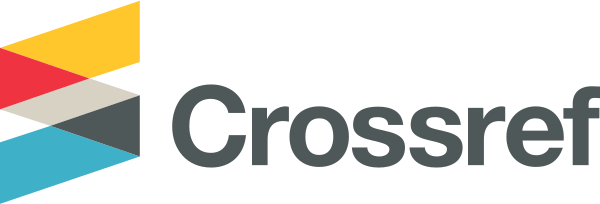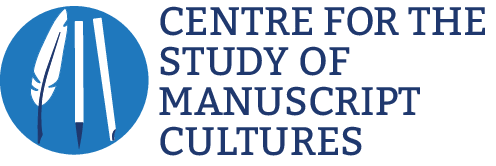
About the journal
Aims and scope
Manuscript Cultures is the peer-reviewed, open access journal of the Centre for the Study of Manuscript Cultures (CSMC). It aims at presenting new approaches to the study of written artefacts that benefit from the insights offered by the humanities, natural sciences and information sciences, and the collaboration between them. Focussing on the ‘written artefact’, the journal seeks to challenge and transcend the restrictive definition of manuscript as ‘the handwritten book’ by including epigraphs, archival documents, graffiti and any other product of handwriting.
Manuscript cultures welcomes contributions that study written artefacts from all regions and periods. In particular, it promotes comparative approaches to written artefacts across geographic, cultural, and temporal spheres, as well as traditional disciplinary boundaries, that contribute to a larger historical and global survey of the role of written artefacts in ancient and modern cultures. In doing so, manuscript cultures provides a new foundation for ongoing discussions in the broad field of cultural studies.
Manuscript cultures has a multi-disciplinary editorial team and advisory board. The journal publishes two issues a year. All articles are published online throughout the year as soon as they are ready for publication. The print version is published annually. Please contact the editorial office about obtaining a printed copy.
Language concept
The primary language of all published articles, including the metadata, is English. The metadata of all articles must be entered completely and stringently in English during the submission process by the authors and checked by the editorial team (Forms). Manuscript cultures aims to publish multilingual abstract for articles. Currently OJS (3.3) does not yet provide the technical functions to display the abstracts. As soon as the plugins are developed, the abstracts will be added. Until then, however, it is imperative that languages are not mixed in the metadata fields, as the metadata is queried and passed on via OAI interfaces in the system of multipliers, databases and search engines.
Funding
Manuscript cultures is published by the Centre for the Study of Manuscript Cultures, which is funded by Deutsche Forschungsgemeinschaft (Exzellenzcluster Understanding Written Artefacts) and the University of Hamburg (https://www.csmc.uni-hamburg.de). The journal is independent and free to choose the articles to be published.
Article Processing Charges (APCs)
This journal is a pure open access journal. The journal does not charge neither article processing charges (APCs) nor article submission charges. For authors, neither the submission nor the publication of articles in the journal incurs any costs. This is also apparent to potential authors under the menu item Submit article.
Re-Launch of the journal in 2024
Initially established as the newsletter of the research group ‘Manuscript Cultures in Asia and Africa’ in 2008, manuscript cultures was transformed into a scholarly journal in 2011. Since Spring 2024, manuscript cultures has been hosted online by Hamburg University Press.
All articles previously published in the journal have been directly linked (different license if applicable). The re-launch of the journal has been initiated with the volume or issue 24 in the year 2024.
Volumes / Issues 1–23
Volumes / Issues 1-23 from the years 2008-2023 of the journal have been published and archived on an alternative platform and are linked within the journal by their respective DOI (persistent identifier). They are freely accessible, but not published according to the journal's current open access standard.
Special issues
The journal regularly publishes special issues on specific topics. Calls for papers for these special issues are announced on the home page and in the journal's announcements. Register with the journal to receive email notifications of future special issues and other announcements.
Publication frequency
The journal publishes two issues per calendar year, one in the spring and one in the fall. The spring issue is filled successively throughout the year. Articles appear directly after successful completion of the review process and thus continuously and without fixed publication dates. The fall issues are special issues, and articles belonging to these are published together with the respective issue.
Print edition
A print version is published by the CSMC. To obtain a printed version of the journal, please contact:
mc-journal.csmc@uni-hamburg.de
Archiving
All articles published by the journal are deposited on the archive server of the German National Library (DNB) and referenced in the DNB catalog. Hamburg University Press, the publishing house of the Hamburg State and University Library, holds all published volumes and articles in a sustainable manner.
Additionally, this journal participates in the PKP Preservation Network. This means that all content of the journal is archived within a private LOCKSS network. New content from the journal is automatically harvested. After a "trigger event" - either a clear message from the journal manager or the cessation of deliveries - the content is made available through the OJS instances of one or more LOCKSS partners.
INFO: LOCKSS is an acronym for "Lots of Copies Keep Stuff Save." The LOCKSS initiative is based on the premise that no single institution can provide long-term preservation. Therefore, this project consists of a cooperation of several libraries. The project was initiated and continued by the Stanford University Libraries. The LOCKSS software is open source.
Hamburg University Press
The journal is implemented as part of the publication services of Hamburg University Press and is hosted on the publisher's server.
Hamburg University Press is the open access publishing house of the Hamburg State and University Library (SUB). The publisher offers scholarly publication services. These include, in particular, the hosting of peer-reviewed open access journals along with consulting and support for their implementation, as well as the publication of books in both print and digital form (Gold Open Access).







